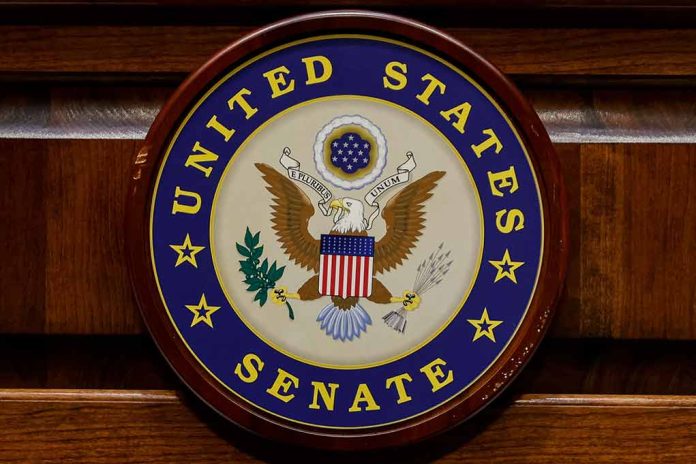
Mitch McConnell’s decision to step down signifies the end of an era defined by conservative leadership and judicial influence.
Key Takeaways
- Mitch McConnell, the longest-serving party leader in the Senate, announced he will not seek re-election in 2026.
- McConnell reshaped the US Supreme Court with a conservative majority during Trump’s presidency.
- Daniel Cameron, a former McConnell aide, announced his candidacy for McConnell’s Senate seat shortly after McConnell’s announcement.
- McConnell’s legacy includes opposing much of Obama’s agenda, including the Affordable Care Act.
- Under Biden, McConnell supported bipartisan deals on infrastructure and semiconductors.
McConnell’s Retirement Announcement
Mitch McConnell, who has served in the U.S. Senate since 1984, recently announced he would not seek re-election in 2026. As the longest-serving Senate Republican leader, McConnell’s decision marks the conclusion of a significant era in American politics. On his 83rd birthday, he delivered a poignant speech, expressing gratitude for the opportunity to serve and describing his career in the Senate as fulfilling a “childhood dream” and an “honor of a lifetime.”
His impactful leadership became evident through his navigation of the Republican Party’s evolution, from the policies of Reagan to those of Trump. McConnell’s tenure included substantial legislative achievements, and he faced the challenges of personal health issues without publicly addressing them in his recorded farewell message.
Judicial and Legislative Influence
McConnell notably influenced the federal judiciary by blocking President Obama’s Supreme Court nomination in 2016, which paved the way for President Trump to appoint Justice Neil Gorsuch. Throughout Trump’s first term, McConnell facilitated the appointment of 234 federal judges, solidifying a conservative judicial majority. These moves underscore his strategic legislative acumen and highlight his enduring legacy in shaping America’s legal landscape.
“Representing our commonwealth has been the honor of a lifetime. I will not seek this honor an eighth time. My current term in the Senate will be my last.” – Mitch McConnell
In his complex relationship with Trump, McConnell endorsed Trump’s presidential campaigns but also criticized aspects of Trump’s governance. This mixed stance illustrates the challenges he faced in balancing party loyalty and personal principles.
Legacy and Future Prospects
McConnell’s political journey is lined with numerous significant legislative accomplishments. His support for Trump’s 2017 tax cuts, alongside efforts to bolster Kentucky’s interests, defined his domestic policy focus. Furthermore, despite his opposition to much of Obama’s agenda, McConnell played a role in bipartisan agreements under the Biden administration, including deals on infrastructure and semiconductor funding.
McConnell remains undecided about his future after his Senate term ends but hinted at continuing to wield influence within his party. His departure leaves a Republican Party transformed by the Trump era and a prospective successor in Daniel Cameron. As McConnell steps away, the conservative movement will continue to reflect his legacy of strategic legislative maneuvering and judicial influence.
Sources
2. Mitch McConnell announces he’ll retire, ending his four-decade Senate career




